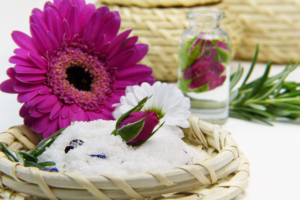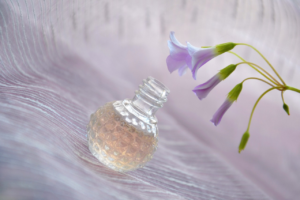The world of Arabic perfume is a treasure trove of scents, with each fragrance telling a unique story. Among these stories, those designed for women stand out as a testament to elegance and femininity. Let’s embark on a fragrant journey into the realm of Arabic perfume for women.
A Symphony of Scents: The Essence of Arabic Perfume
Arabic perfume, often referred to as “Ittar” or “Attar,” has a rich history dating back centuries. It is an art form that combines tradition and innovation to create captivating fragrances. Here are some key points that showcase the essence of Arabic perfume:
- Natural Ingredients: Arabic perfumes are known for their use of natural ingredients. These include exotic flowers, spices, woods, and resins carefully sourced from around the world. Each ingredient contributes to the complexity of the scent.
- Traditional Distillation: The process of distillation plays a crucial role in Arabic perfume-making. Traditional methods involve extracting essential oils from raw materials through steam or hydro-distillation. This meticulous process ensures the purity of the fragrances.
- Distinctive Fragrance Profiles: Arabic perfumes are celebrated for their unique fragrance profiles. They often feature-rich, deep, and long-lasting scents with layers of complexity. These perfumes evolve on the skin, revealing different notes over time.
Arabia Perfume: A Cultural Tradition

Perfume holds a special place in Arabic culture, where it is deeply intertwined with tradition and heritage. Understanding the cultural significance of perfume in Arabia provides valuable insights into the art of fragrance-making:
- Symbol of Hospitality: Offering guests perfume is a sign of hospitality and respect in Arab culture. It is customary to welcome visitors with a sprinkle of fragrance on their hands or clothing.
- Spiritual Connection: Perfume is associated with spirituality and religious rituals. It is believed to purify and elevate the soul. Many Arabic perfumes incorporate scents mentioned in Islamic texts.
- Traditional Perfume Oils: Arabic perfumers are known for their mastery of crafting traditional perfume oils. These oils are often used as personal fragrances or as part of an elaborate grooming routine.
Air Freshener for Office: A Fragrant Workspace
In addition to personal fragrances, Arabic perfume has found its way into the air freshener for office. This trend is not just about pleasant scents; it’s about creating a conducive and inspiring work environment.
Here’s how office air fresheners are making a difference:
- Enhanced Productivity: Studies have shown that pleasant scents can have a positive impact on productivity and mood. A well-chosen office air freshener can help employees stay focused and motivated.
- Creating a Welcoming Atmosphere: A fragrant office space can leave a lasting impression on clients and visitors. It conveys professionalism and attention to detail, making them feel welcomed and valued.
- Customized Fragrance Profiles: Many companies now offer customizable air fresheners, allowing businesses to choose scents that align with their brand identity. Whether it’s a fresh citrus aroma or a calming lavender scent, the possibilities are endless.
The Art of Perfume Creation: Unveiling the Craftsmanship

The creation of Arabic perfume is an art that requires a blend of expertise, creativity, and a deep understanding of fragrance notes. To truly appreciate the world of Arabic perfume, we must delve into the craftsmanship behind these captivating scents.
The Perfumer’s Palette: A Fragrant Symphony
Arabic perfumers are often referred to as “noses” due to their finely tuned olfactory senses. These skilled artisans are the architects of fragrance, meticulously selecting and combining individual scent notes to create harmonious compositions. Here’s a glimpse into their perfumer’s palette:
- Top Notes: These are the initial scents that greet your senses when you apply a perfume. They are typically light and fleeting, providing the first impression of the fragrance. Common top notes in Arabic perfumes include citrus fruits, bergamot, and green leaves.
- Heart Notes: Also known as middle notes, these form the core of the fragrance and become more noticeable after the top notes evaporate. Heart notes often consist of floral or herbal scents like rose, jasmine, or lavender, adding depth and character to the perfume.
- Base Notes: The foundation of the fragrance, base notes are long-lasting and provide stability to the overall scent. Ingredients like sandalwood, oud, vanilla, and musk are frequently used as base notes in Arabic perfumes, lending them their signature depth and complexity.
The Oud Mystique: A Prized Ingredient
One cannot explore Arabic perfumery without encountering the mystical allure of oud. Oud, also known as agarwood, is a prized resinous wood that has been used in perfumery for centuries. It is known for its rich, woody, and slightly sweet aroma. Here’s why oud is so highly regarded:
- Rare and Precious: Oud is derived from the heartwood of agarwood trees, which are native to Southeast Asia. The formation of agarwood is a rare and natural process, making it one of the most expensive and sought-after perfume ingredients in the world.
- Aged to Perfection: Oud’s aroma becomes more complex and appealing as it ages. Some oud oils are aged for decades, resulting in a depth of scent that is impossible to replicate with synthetic ingredients.
- Spiritual Significance: Oud holds deep spiritual and cultural significance in many regions. It has been used in religious ceremonies and traditional healing practices for centuries.
Crafting Signature Blends: An Artistic Pursuit
Arabic perfumers are renowned for their ability to craft signature blends that cater to a wide range of preferences. Here are a few examples of iconic Arabic perfume categories:
- Floral Elegance: Arabic perfumes often feature exquisite floral blends. Rose, jasmine, and orange blossom are frequently used to create fragrances that exude elegance and femininity. These scents are perfect for special occasions and romantic evenings.
- Oriental Intrigue: For those who prefer deeper and more complex fragrances, oriental perfumes are a popular choice. These often include oud, spices like saffron and cardamom, and sweet notes like vanilla. Oriental scents are alluring and mysterious.
- Fresh and Citrusy: Arabic perfumery also offers fresh and invigorating options. Citrus notes, such as bergamot and lemon, are combined with herbs and green accords to create scents that are perfect for daytime wear and a burst of freshness.
The Artistry of Arabic Perfume Packaging
In addition to the fragrance itself, the packaging of Arabic perfumes is a work of art. Perfume bottles are often meticulously designed, featuring intricate patterns, vibrant colors, and sometimes even semi-precious gemstones. These bottles are not merely containers but objets d’art meant to be displayed and cherished.
A Fragrant Legacy: Arabic Perfume’s Enduring Appeal
Arabic perfume is more than a scent; it’s a cultural and artistic expression that has endured for centuries. Its appeal lies in its ability to evoke emotions, tell stories, and create lasting memories. As we explore the world of Arabic perfume, we are reminded that fragr
In Conclusion: The Perfumed Overture
Arabic perfume for women is a captivating symphony of scents, each note harmonizing with the next to create fragrances that are both elegant and enduring. With a deep-rooted cultural tradition, the world of Arabia perfume continues to evolve, embracing modern trends while preserving its rich heritage.
As we explore this fragrant world, we are reminded that perfume is not just about smelling good; it’s about creating a sensory experience that speaks to the soul. Whether in the form of personal fragrances or office air fresheners, Arabic perfume has the power to uplift, inspire, and leave a lasting impression.
In the end, it’s the symphony of scents that lingers in our memories, reminding us of the timeless elegance of Arabic perfume and its enduring allure.
Author Bio:

Sayed Sayeedur Rahman is a professional SEO specialist, digital marketer, and content writer. He’s a certified professional with extensive professional experience working with USA and UK-based companies to grow their businesses. He’s the Co-Founder of TechLookBD digital marketing agency.
